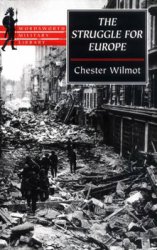In December 1908, the general meeting of members and electors of the Representation for Jewish Welfare threw into sharp relief both the animosity between the Representation, little changed since the pre-1905 era, and the OPE, as well as Gurevich's charge that the Representation's plutocrats were hostile to the new openness of communal affairs. Here, as at the OPE meetings two years before, the "old guard" faced an "opposition" of democrats led by Mark Tsitron, though now that opposition was part of the OPE leadership, and the mutual hostility of the two institutions and their leaderships was clear and open. The meeting helps explain why the elections and reforms did little to change the organizational culture and politics of the Representation: the established leadership and its basic assumptions, especially as personified by Lev Brodsky and his somewhat domineering personality (hardly surprising for the surviving "king" of Kiev's Jews), remained the same, though masked by populist rhetoric. The record of the meeting also reveals the assumptions and tactics of the plutocrats and especially Brodsky, who clearly viewed himself as the natural leader of the community and, though the elected chairman of an elected Representation, saw no need for democratic procedures in the operations of the Representation itself. Also quite clear is the extent to which the authority of the Representation, supposedly a collective of twenty-four elected members, resided in the person of Brodsky.
As the local paper Kievskaia mysl’ (Kiev Thought) reported, it was only after many requests and entreaties from the electors from Kiev's synagogues and philanthropic institutions that Brodsky agreed to call the meeting at all.166 He opened it by announcing that he would preside and set the agenda (though the rules called for the election of a special meeting chairman), and would not tolerate any criticism. "I have called you here not so that you might criticize our activities, but only to read you my plan to replace the korobka with communal self-taxation"; the electors were also to be familiarized with the Representation's activities over the year. When several individuals protested against the meeting being conducted in this fashion, Brodsky replied, "The administration permitted me to call this meeting with the provision that I would personally preside over it." In other words, the Jews of
Kiev were not to take the democratic functioning of their communal institutions for granted; it was still the influence of plutocrats such as Brodsky— which influence had always vested him with claims to Jewish leadership— that made such meetings as this possible. Without him, the meeting would not have been permitted at all, so no one could rightfully oppose his presiding over it.
If we try to see this meeting through Brodsky's eyes, we might understand that his perspective was quite different. The fact that he had a plan to introduce a system of communal self-taxation as already existed in Warsaw and other cities was "progressive" in a certain sense; rather than maintaining the status quo, he was now actively working to overturn it in favor of a more equitable system. Nor was this a new initiative for him, as he and David Margolin had submitted a proposal of this kind to the governor-general in 1905. And, given the bitter intracommunal rifts that had riven Jewish Kiev over the previous years, Brodsky may have felt that maintaining strict control over the meeting, rather than allowing it to deteriorate into petty squabbling, would be in the best interests of all present.
Throughout the meeting, Brodsky frequently spoke in the first person when referring to the Representation as a whole, and kept the debate focused on himself: when Tsitron began to speak at length about the proposed budget for the Representation, Brodsky insisted that Tsitron respond to each individual budget entry after it had been introduced and described by Brodsky himself. As neither Brodsky nor Tsitron wanted to cede the spotlight to the other, the meeting threatened to become a face-off between two imperious and domineering personalities. At the end of the meeting, Brodsky responded to a move to put the most important issues to a vote by expressing his sympathy for them but refusing to hold a vote, as he was certain that all those assembled were also in favor of the proposals. This may have been the most logical decision from his perspective; his natural claim to leadership and accurate perception of the community's wishes and needs meant that the formalities of democracy were unnecessary. Another possibility is that, in the interests of communal unity and peace, he wished to avoid a vote that would inevitably bring with it additional strife and recriminations.
It is no accident, however, that the proposals to be voted on were initiated by OPE activists and related to OPE institutions. In the first instance, those activists protested the disproportionately large cut in the Representation subsidy to the OPE, and demanded that the subsidy be increased. They
Also proposed eliminating the rent that the OPE was paying to house its Saturday school for adults at the Brodsky School, one of Brodsky's pet institutions. Moreover, they demanded action on the establishment of a school for midwives and physicians' assistants at the Jewish Hospital, the darling of the plutocrats, because—the OPE members claimed—students of existing schools had been imploring them to create just such a school. The OPE members also proposed establishing a unified schools commission under the auspices of their organization, to which several Representation members objected; one of the bodies that would be subject to the unification was the Representation's own schools commission. Perhaps attempting to play the peacemaker, Brodsky was not opposed to this plan, saying, "I never objected and never will object to such a united commission." There is no doubt, however, that a struggle for power and resources was under way between the Representation, with Brodsky at its head, and the OPE, led by Tsitron. The battle to gain power, as well as the possibility of losing it, were motivating factors for action in communal politics.
Another important issue that resurfaced here was the legitimacy of power: as in the struggle between Lur’e and the plutocracy, the question was who had the right to lead and speak for the Jewish population. On this, the Representation and the OPE leadership (mostly in the person of Tsitron) clashed throughout the course of the meeting, each group claiming to care for and understand the needs of the Jewish masses and obliquely charging that the other group was not as sensitive to those needs. OPE activists claimed that young Jewish girls, students at Kiev's midwifery schools, were asking the OPE for help because they were forced to go hungry in order to pay exorbitant tuitions; the need for a Jewish midwifery school at the Kiev Jewish Hospital (funded in large measure by the Representation) was evident, but the Representation was preventing it. Brodsky answered that he was waiting to study the response of the Jewish population of Warsaw and Odessa to similar schools recently founded there, as such schools performed autopsies—not permitted by Jewish law. Brodsky thus responded to the OPE's indirect assertion that it was the address of choice for Kiev Jews in need by showing that he, too, was sensitive to the needs—material as well as religious—of the Jewish masses. Several other Representation members responded to criticism of their performance with the assertion that they were trying to ease the plight of the Jewish poor as much as circumstances allowed—and that the same shortcomings could be found in any society, including the OPE. In other words, as they saw things, the OPE was in reality no better than the Representation in being sensitive to the needs of the Jewish street.




 World History
World History



![Road to Huertgen Forest In Hell [Illustrated Edition]](https://www.worldhistory.biz/uploads/posts/2015-05/1432477693_1428700369_00344902_medium.jpeg)





